Barely whisper the name “Sandy” on Long Island and PTSD sets in for many residents. The 2012 hurricane cost New York $41.9 billion in recovery and mitigation expenses, and millions in the Northeast were without power for almost two weeks. When Hurricane Isaias hit earlier this month in the middle of a pandemic, concern was high. Calls for energy storage systems increased significantly for Long Island residential and commercial solar installer SUNation, and now demand for batteries is far outpacing the company’s supply.
In this episode of the Contractor’s Corner podcast, Solar Power World editor-in-chief Kelly Pickerel talks with Scott Maskin, CEO of SUNation, about this crazy year, from being essentially shut down for 12 weeks at the beginning of COVID-19 to now being overwhelmed with business as the next natural disaster hits.
A portion of the interview is below, but be sure to listen to the full podcast for even more insight, including more about the difficult process of getting solar installation deemed an essential service in New York during early COVID shutdowns and the good things the installer does in the community through its nonprofit SUNation Cares.
Find the Contractor’s Corner podcast on your favorite podcast app.
Has coronavirus led to more people wanting to have energy storage?
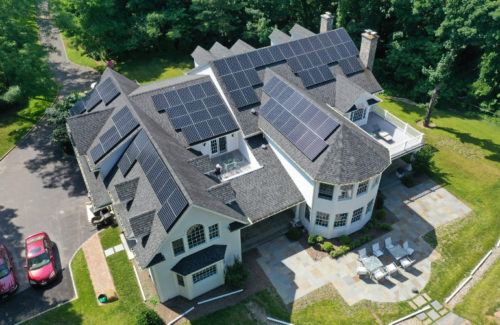 We do a lot of commercial work here, and we talk to Long Island CEOs. You’re spending money on making sure your team is secure and outfitted to work from home and business continues, but what about not having power? Imagine that COVID happened during Sandy. Where would your business be? You have to make sure you can communicate with your leadership team working from home. Isaias really hammered it home. Everybody was talking about being able to work from home and this is the new norm. Well the new norm sucks if you have no power. If people are going to be working from home, there are going to be outages and it’s going to interrupt business which is going to interrupt commerce. So making an investment like that in your staff is prudent.
We do a lot of commercial work here, and we talk to Long Island CEOs. You’re spending money on making sure your team is secure and outfitted to work from home and business continues, but what about not having power? Imagine that COVID happened during Sandy. Where would your business be? You have to make sure you can communicate with your leadership team working from home. Isaias really hammered it home. Everybody was talking about being able to work from home and this is the new norm. Well the new norm sucks if you have no power. If people are going to be working from home, there are going to be outages and it’s going to interrupt business which is going to interrupt commerce. So making an investment like that in your staff is prudent.
SUNation has been around since 2003. Has this year been the craziest portion of business?
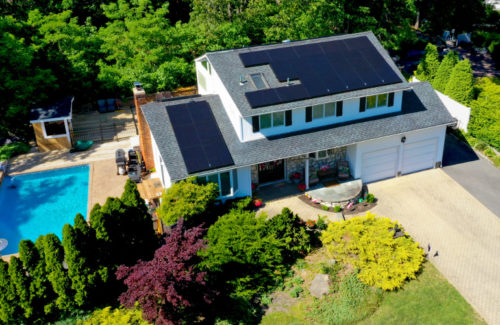 Personally at the CEO level, this has definitely been the toughest thing for me, no question. There was no solid plan. It’s one thing to have a problem and work toward a solution. It’s another thing to have a problem and not have sound footing on what the solution is going to be. There was about a four-month period where I did nothing but hang on and try to keep the business together. I was on the phones with customers making sure deals were getting sold, because if sales fall off, ultimately everything is going to fall off. You roll up your sleeves and get involved, which is frankly a good thing because it regrounds you. We call it a solarcoaster. There’s never been a time where we are climbing up and didn’t know beyond a shadow of a doubt that there was going to be that fall, that exhilarating drop.
Personally at the CEO level, this has definitely been the toughest thing for me, no question. There was no solid plan. It’s one thing to have a problem and work toward a solution. It’s another thing to have a problem and not have sound footing on what the solution is going to be. There was about a four-month period where I did nothing but hang on and try to keep the business together. I was on the phones with customers making sure deals were getting sold, because if sales fall off, ultimately everything is going to fall off. You roll up your sleeves and get involved, which is frankly a good thing because it regrounds you. We call it a solarcoaster. There’s never been a time where we are climbing up and didn’t know beyond a shadow of a doubt that there was going to be that fall, that exhilarating drop.
What does SUNation hope to accomplish in the next few years?
If we can get out of 2020 in one piece, that would be super welcome. COVID gave the company an opportunity to reboot. When you grow your business super rapidly, it’s kind of like a hamster wheel. You’re running around in the wheel and adding staff to make revenue, and sometimes it’s good to be able to stop. It’s good to reboot and retool and refocus your company. We changed some of our processing stuff. If I can get through 2020 flat, that would be a win. For the next couple years, if we could have a little moderate growth…we’re more interested in profitability now than growth. That was a tactical change for us.
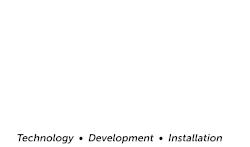
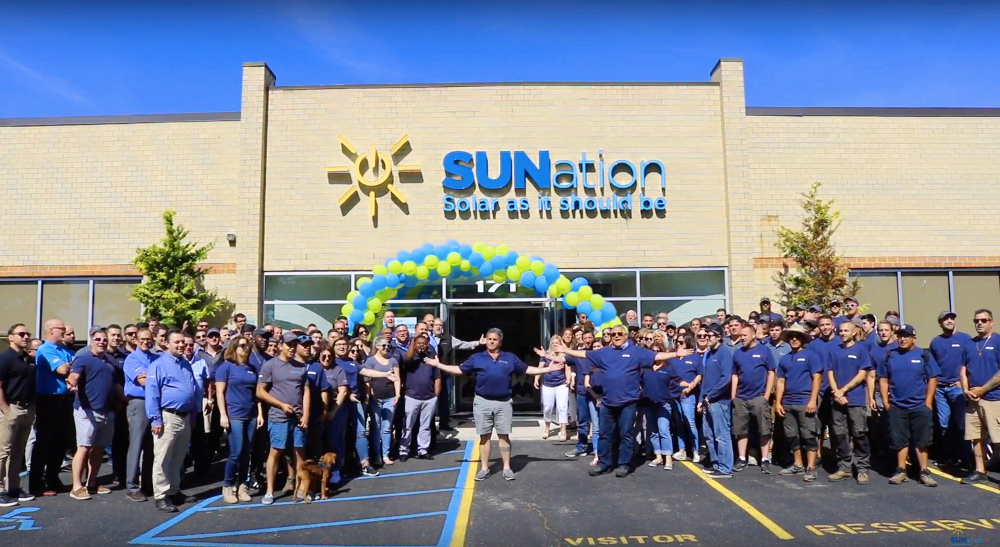
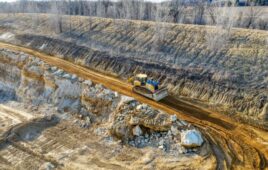
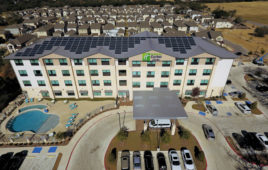
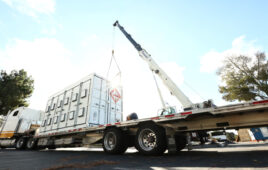
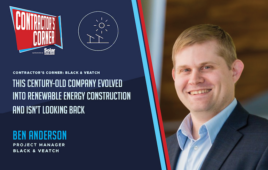
When I say “front lines” I’m referring to our 55 workers who were specifically called to the front lines of the hurricane response. Best of luck “getting out of 2020 in one piece.” Our door is open if you need advice.
Interesting take!!
Thanks for the emphasis from a contractor’s perspective. In California, I’m a Solar (C46), Electrical (C10), and Instrumentation (C7) contractor starting in business in 2004.
1. I agree today’s energy storage is driving solar requirementsl. BTW, the reuse of solar modules in residential ground-mounted systems could remove a barrier with rating requirements of solar roof coverings. Simply, “reused” modules could be placed on an open rack structure as an option too? In other words, you may be able to reuse the solar modules in a ground-mount.,
2. In addition, solar workers are differently able as well. For instance, there could be more solar workers without the ability to hear, but have outstanding hands-one skills – skills overlooked by companies and could be working together for a solution.
The folks in the solar industry must continue to be different by displaying kindness and speaking kindly of one another. We must working together to correct the damage in the environment.
What do you think?
Nice story
Very interesting choice of interviewee. The rest of LI solar has not stopped operating
So what you are saying is SunRun was installing solar during the 12 week Gov. mandated shut down?
We’ve had a very different experience throughout the COVID-19 pandemic and Hurricane Isaias. We are the only Long Island solar company whose crew was personally asked to help PSEG with hurricane relief (Long Island’s only electric company) and we’re proud to say we lent 55 of our own guys to the front lines. I work with Sunrise Power Solutions, a clean energy contractor based in Long Island NY. We service the municipal, K-12 educational and mechanical markets. We’ve kept LI workers employed throughout the pandemic; we are easily the busiest solar installer in our region and are proud to provide access to clean energy to dozens of school’s in our region. While schools were closed for quarantine, we’ve been working hard to make those schools more efficient, so districts can reinvest in education and come back stronger than ever. Let’s chat!
This is true, School districts were deemed essential even through Covid shut down. Somehow empty school buildings were essential. Sunrise is also a Union local 25 outfit and therefore was able to assist but I’m not so sure i would consider deploying panels on flat roofs on school districts as “Front Lines”. Not sure if Sunrise employs linemen, different skill set but I have no comment on what the storm response entailed. As far as the busiest in the region, perhaps on school districts, certainly not in other sectors.